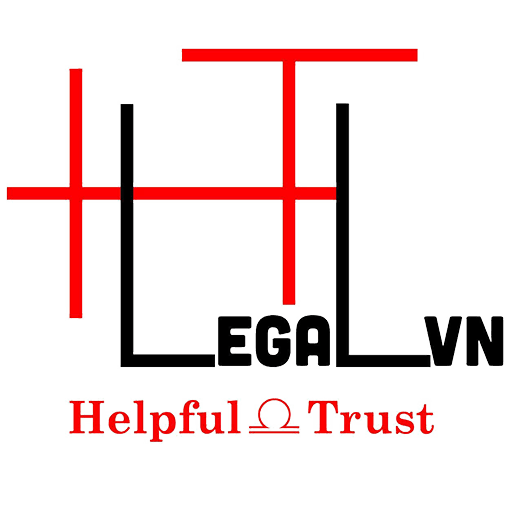Legal Analysis and Practical Risk Warnings (Updated 2025)
Lawyer Nguyen Thanh Trung – HT Legal VN Law Firm
1. Legal context: From asset repossession rights to forced auctions
Since 2025, Article 198a of the amended Law on Credit Institutions allows banks to repossess collateral without court intervention. This has accelerated debt settlement processes and resulted in two main forms of asset disposal:
- Direct sale through the bank (repossession of collateral);
- Auction of property under civil judgment enforcement decisions.
This has created a growing supply of real estate on the market. However, key legal questions arise:
- Is the purchaser legally protected?
- Are there any legal or practical risks related to the asset’s status?
- In case of disputes, who bears the legal responsibility?
2. Legal framework protecting purchasers of auctioned properties
Purchasers of auctioned property (whether via banks or judgment enforcement agencies) are legally protected if certain conditions are met.
Applicable legal documents:
- Law on Civil Judgment Enforcement 2008 (amended and supplemented);
- Law on Property Auction 2016 (amended and supplemented);
- Law on Housing 2014 and relevant guiding regulations;
- Decree No. 62/2017/ND-CP (amended by Decree No. 47/2023/ND-CP);
- Civil Code 2015.
Key legal principles:
- A bona fide purchaser who participates in a lawful auction and fully pays the winning price shall be legally recognized as the lawful owner.
- The processes of seizure, valuation, public notice, auction, and payment must be transparent and legally compliant.
- Where assets are repossessed and auctioned by banks, the procedures of notification, repossession, valuation, auction – and transfer must also strictly follow the law.
3. Common legal risks in practice
Despite having a comprehensive legal framework, the actual process of disposing of auctioned assets involves numerous practical legal risks, such as:
- Incomplete enforcement dossiers;
- Irregularities in repossession or auction procedures;
- Complex ownership history or existing disputes;
- Current occupants resisting handover;
- Errors in judgment, enforcement or bank debt recovery procedures.
3.1. Risks related to asset origin:
- Unresolved capital contribution disputes;
- Missing parties with joint ownership rights in the enforcement proceedings;
- Property subject to multiple, overlapping rights or unclear ownership.
3.2. Procedural risks:
- Irregularities in seizure, valuation, notice, or public auction steps;
- Incomplete documentation for repossession, auction, or transfer;
- Failure to notify third parties with legal interests;
- Unforeseen costs: court fees, registration fees, enforcement charges…
3.3. Asset condition risks:
- Property occupied by unauthorized parties who refuse to vacate;
- Unfinished or illegally constructed buildings (no occupancy certificate);
- Discrepancies between actual boundaries and legal descriptions;
- Land use rights certificates (“red books”) contain restrictive annotations or are under dispute.
4. Rights and obligations of involved parties
Auction winner (purchaser):
- Rights: Entitled to legal ownership and land use rights certificate upon full payment.
- Obligations: Complete payment and complete ownership transfer procedures.
Judgment debtor:
- Obligations: Deliver property as per the court judgment.
- Rights: Receive the remaining proceeds (if any) after deducting debts and enforcement costs.
Judgment enforcement agency / Bank:
- Rights: Repossess, auction, or sell assets as permitted by law.
- Obligations: Provide accurate information, follow proper legal procedures, and avoid infringing upon third-party rights.
5. Practical experience – critical legal safeguards
With over 15 years of experience assisting clients in asset auctions and judgment enforcement proceedings, HT Legal VN emphasizes the importance of legal diligence at every stage:
5.1. Before participating in an auction:
- Thoroughly review the court judgment, enforcement decisions, repossession documents (if applicable) and compare them with the actual asset condition.
- Ensure that all relevant parties, including third parties with potential interests, have been properly summoned.
- Retain a qualified lawyer to assess risks.
- Prepare a complete financial plan, including contingency costs.
5.2. During the auction process:
- Carefully examine all procedures, auction minutes, and sale contracts.
- Understand the legal implications for both successful and unsuccessful bidders.
- Avoid placing abnormally low bids to reduce the risk of post-auction disputes or allegations of bad faith.
5.3. After winning the auction:
- Make payments on time in accordance with the judgment and auction agreement.
- Follow up on ownership transfer, certificate issuance, and asset delivery.
- Be prepared to deal with disputes, complaints, or forced execution if needed.
6. Conclusion & legal recommendations
Buying real estate through auction or enforcement procedures can be a safe and legitimate investment opportunity if the buyer:
- Conducts thorough legal and practical due diligence;
- Has an experienced lawyer accompany them throughout the process;
- Has sufficient financial capacity and risk-management awareness.
However, buyers must remain cautious and never rely solely on verbal promises or sales pitches, especially for “cheap deals” without clear legal backing.
“Saving a few hundred million upfront could cost years in court—and the asset itself.”
7. Full-service legal support by HT Legal VN
Our firm offers a full range of specialized legal services, including:
- Pre-auction legal consulting: Due diligence, risk assessment, market valuation.
- Assistance during auction or enforcement: Document review, legal representation.
- Post-auction support: Ownership transfer, certificate registration, enforcement or dispute resolution if needed.
📞 Contact us for legal protection and guidance:
Lawyer Nguyen Thanh Trung – HT Legal VN Law Firm
Legal Partner – Specialized, Dedicated, and Effective.
Be cautious to buy right – buy safely – and keep your property legally secure.
We are pleased to welcome our valued clients at the following addresses:
Lawyer Nguyễn Thanh Trung or HT LEGAL VN LAW FIRM
Office 1: 12 Alley 602/37 Điện Biên Phủ Street, Thạnh Mỹ Tây Ward, Ho Chi Minh City
Office 2: 207B Nguyễn Phúc Chu Street, Tân Sơn Ward, Ho Chi
Minh City
Office 3: 5 Alley 252/115 Tây Sơn Street, Đống Đa Ward, Hanoi
Email: info@htlegalvn.com Hotline: 09 6161 4040 – 09 4517 4040

 then 'Add to home screen'
then 'Add to home screen' then 'Add to home screen'
then 'Add to home screen'




